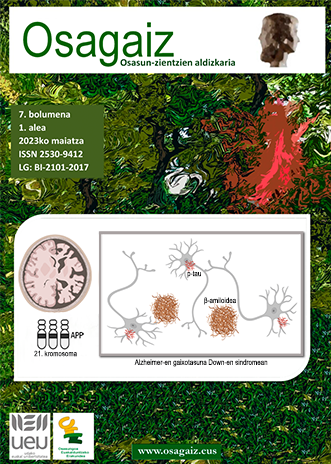Laburpena
Minbizidun pazienteen ingurune hurbilak asetzen ez dituen premiei erantzuteko, berdinen arteko gizarte-laguntzako programak sortu dira azken urteotan. Luzetarako saiakuntza kliniko batean kokatzen den ikerketa honen helburua izan da aztertzea zer eragin duen berdinen arteko gizarte-laguntzako esku-hartze batek estresari aurre egiteko estrategia ezberdinetan, Gipuzkoako Onkologikoa Fundazioan bularreko minbiziaz diagnostikatutako emakumeen artean eta bularreko minbizia gainditutako boluntarioek trukatutako laguntza oinarri hartuta. Esku-hartzea 6 edo 8 gizarte-laguntzako saioz osatu zen, bakoitzean paziente batek eta boluntario batek parte hartu zutelarik. Emaitzek islatzen dutenez, talde esperimentaleko emakumeek umorea bezalako aurre-egite egokitzailea gehiago erabili zuten eta ezeztapena bezalako aurre-egite ez-egokitzailea, aldiz, neurri txikiagoan. Gainera, kimioterapia jaso zuten kontrol-taldeko parte-hartzaileen artean umorearen erabilera urriagoa egin zen, jaso ez zutenekin alderatuta. Gure aurkikuntzek iradokitzen dute berdinen arteko gizarte-laguntzako programek arintzen lagun dezaketela esperientzia kaltegarriek pazienteen osasunean izan dezaketen eragin negatiboa, estresari aurre egiteko estrategia egokitzaileak sustatuz eta ez-egokitzaileak murriztuz.

